Adrian Kelly
A Pioneering Roadmap for ML-Driven Algorithmic Advancements in Electrical Networks
May 28, 2024



Abstract:To advance control, operation and planning tools of electrical networks with ML is not straightforward. 110 experts were surveyed showing where and how ML algorithmis could advance. This paper assesses this survey and research environment. Then it develops an innovation roadmap that helps align our research community towards a goal-oriented realisation of the opportunities that AI upholds. This paper finds that the R\&D environment of system operators (and the surrounding research ecosystem) needs adaptation to enable faster developments with AI while maintaining high testing quality and safety. This roadmap may interest research centre managers in system operators, academics, and labs dedicated to advancing the next generation of tooling for electrical networks.
Learning to run a power network with trust
Oct 21, 2021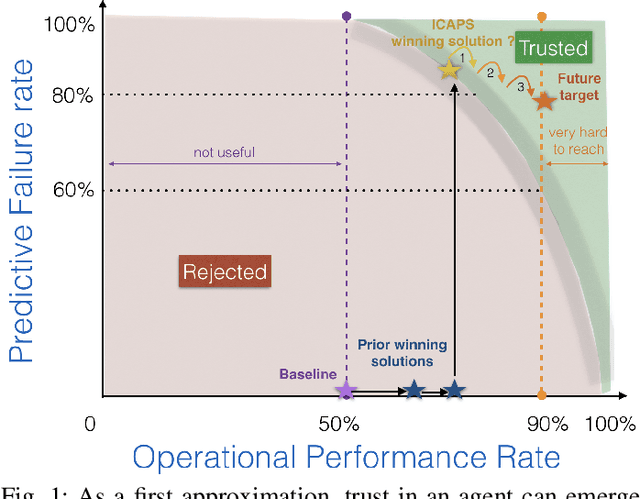
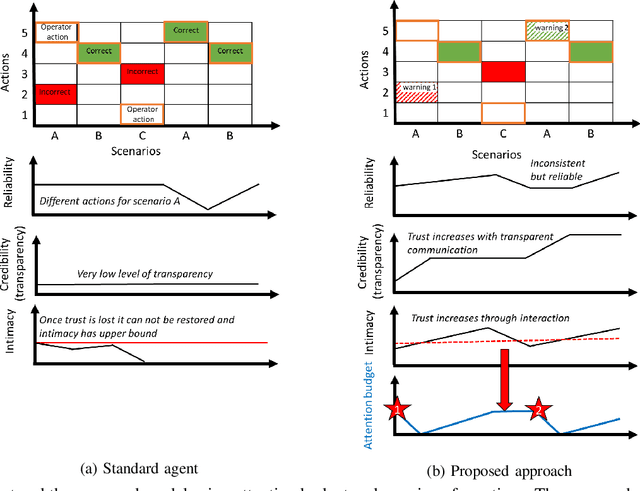
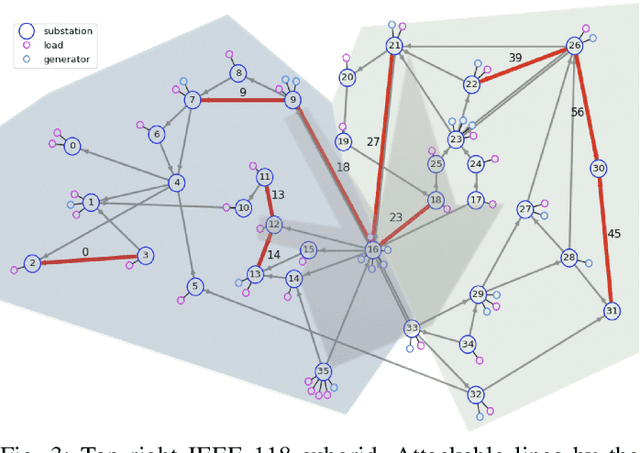
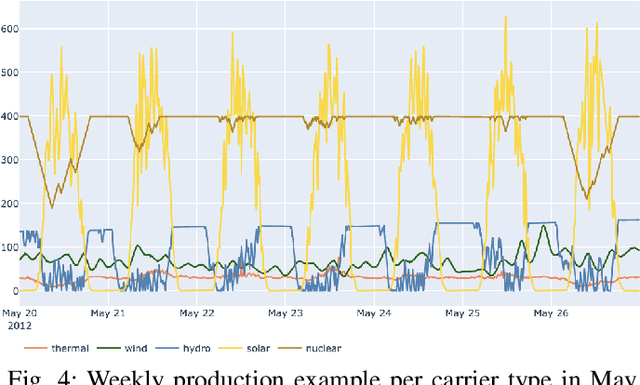
Abstract:Artificial agents are promising for realtime power system operations, particularly, to compute remedial actions for congestion management. Currently, these agents are limited to only autonomously run by themselves. However, autonomous agents will not be deployed any time soon. Operators will still be in charge of taking action in the future. Aiming at designing an assistant for operators, we here consider humans in the loop and propose an original formulation for this problem. We first advance an agent with the ability to send to the operator alarms ahead of time when the proposed actions are of low confidence. We further model the operator's available attention as a budget that decreases when alarms are sent. We present the design and results of our competition "Learning to run a power network with trust" in which we benchmark the ability of submitted agents to send relevant alarms while operating the network to their best.
Learning to run a Power Network Challenge: a Retrospective Analysis
Mar 02, 2021



Abstract:Power networks, responsible for transporting electricity across large geographical regions, are complex infrastructures on which modern life critically depend. Variations in demand and production profiles, with increasing renewable energy integration, as well as the high voltage network technology, constitute a real challenge for human operators when optimizing electricity transportation while avoiding blackouts. Motivated to investigate the potential of Artificial Intelligence methods in enabling adaptability in power network operation, we have designed a L2RPN challenge to encourage the development of reinforcement learning solutions to key problems present in the next-generation power networks. The NeurIPS 2020 competition was well received by the international community attracting over 300 participants worldwide. The main contribution of this challenge is our proposed comprehensive Grid2Op framework, and associated benchmark, which plays realistic sequential network operations scenarios. The framework is open-sourced and easily re-usable to define new environments with its companion GridAlive ecosystem. It relies on existing non-linear physical simulators and let us create a series of perturbations and challenges that are representative of two important problems: a) the uncertainty resulting from the increased use of unpredictable renewable energy sources, and b) the robustness required with contingent line disconnections. In this paper, we provide details about the competition highlights. We present the benchmark suite and analyse the winning solutions of the challenge, observing one super-human performance demonstration by the best agent. We propose our organizational insights for a successful competition and conclude on open research avenues. We expect our work will foster research to create more sustainable solutions for power network operations.
Reinforcement Learning for Electricity Network Operation
Mar 16, 2020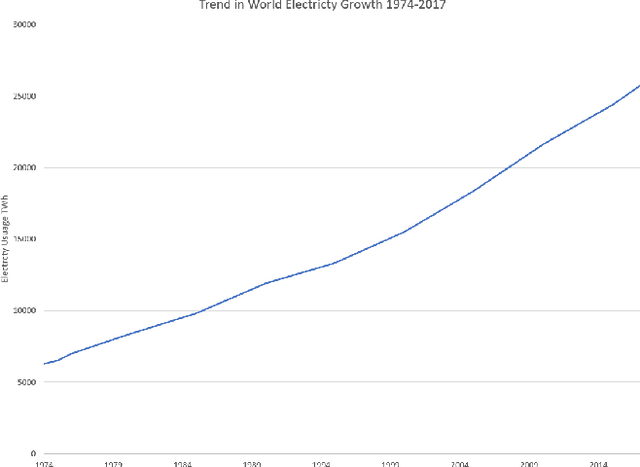
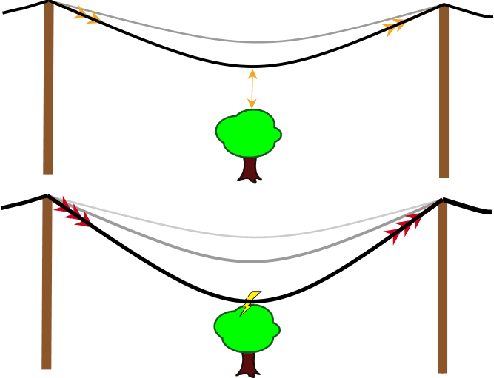
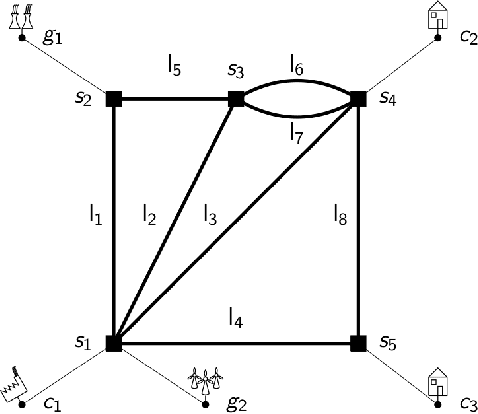

Abstract:This paper presents the background material required for the Learning to Run Power Networks Challenge. The challenge is focused on using Reinforcement Learning to train an agent to manage the real-time operations of a power grid, balancing power flows and making interventions to maintain stability. We present an introduction to power systems targeted at the machine learning community and an introduction to reinforcement learning targeted at the power systems community. This is to enable and encourage broader participation in the challenge and collaboration between these two communities.
 Add to Chrome
Add to Chrome Add to Firefox
Add to Firefox Add to Edge
Add to Edge